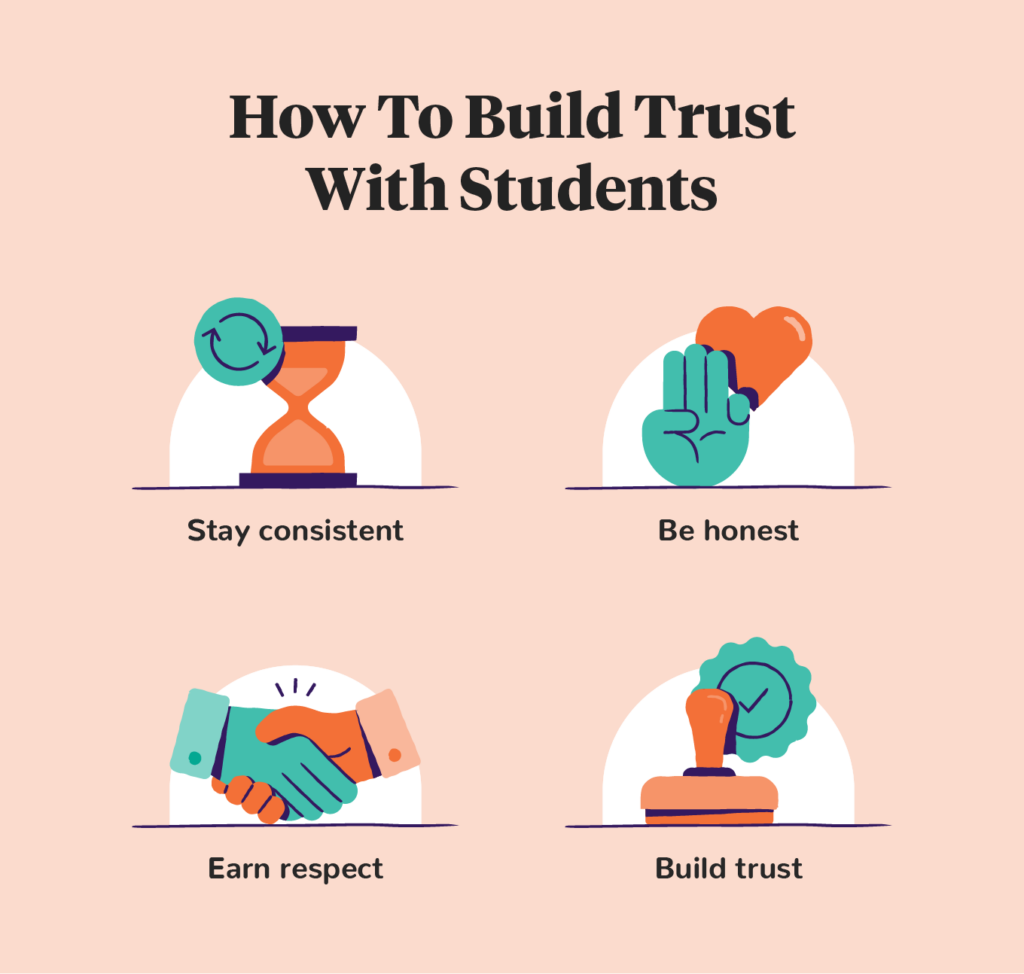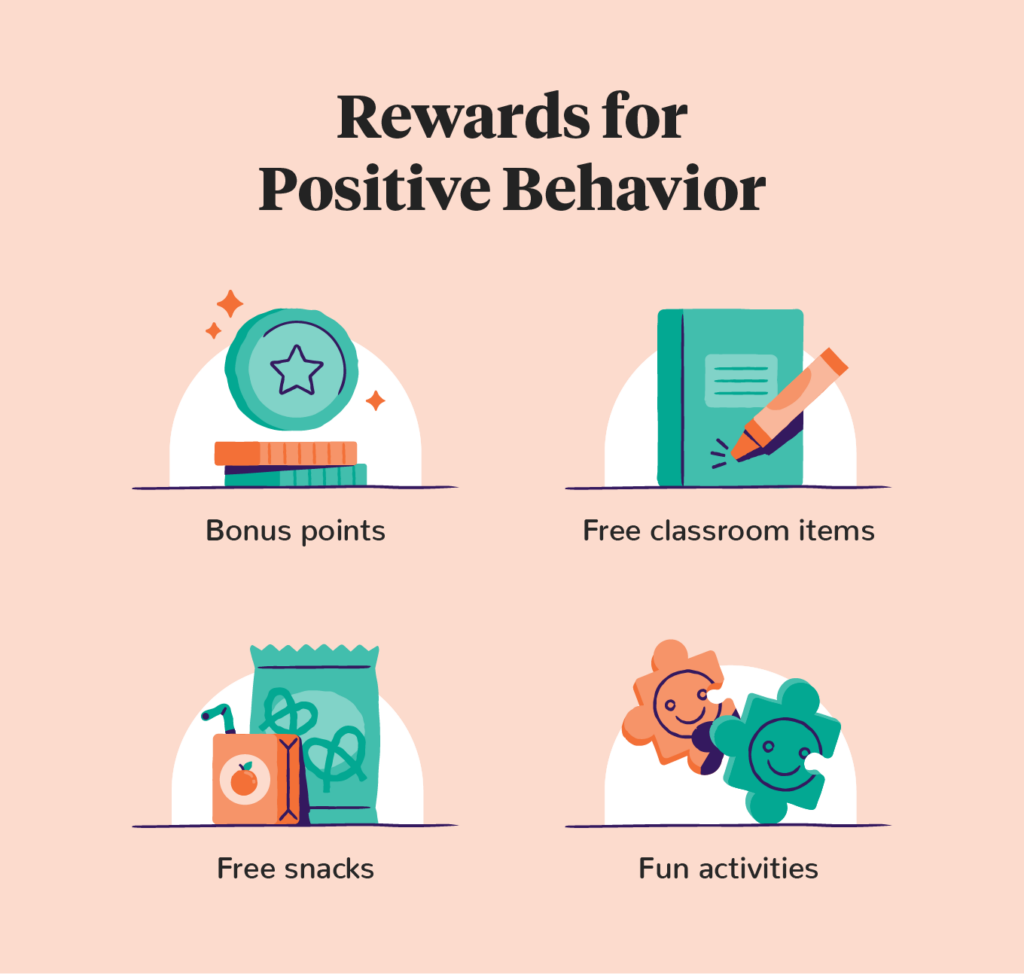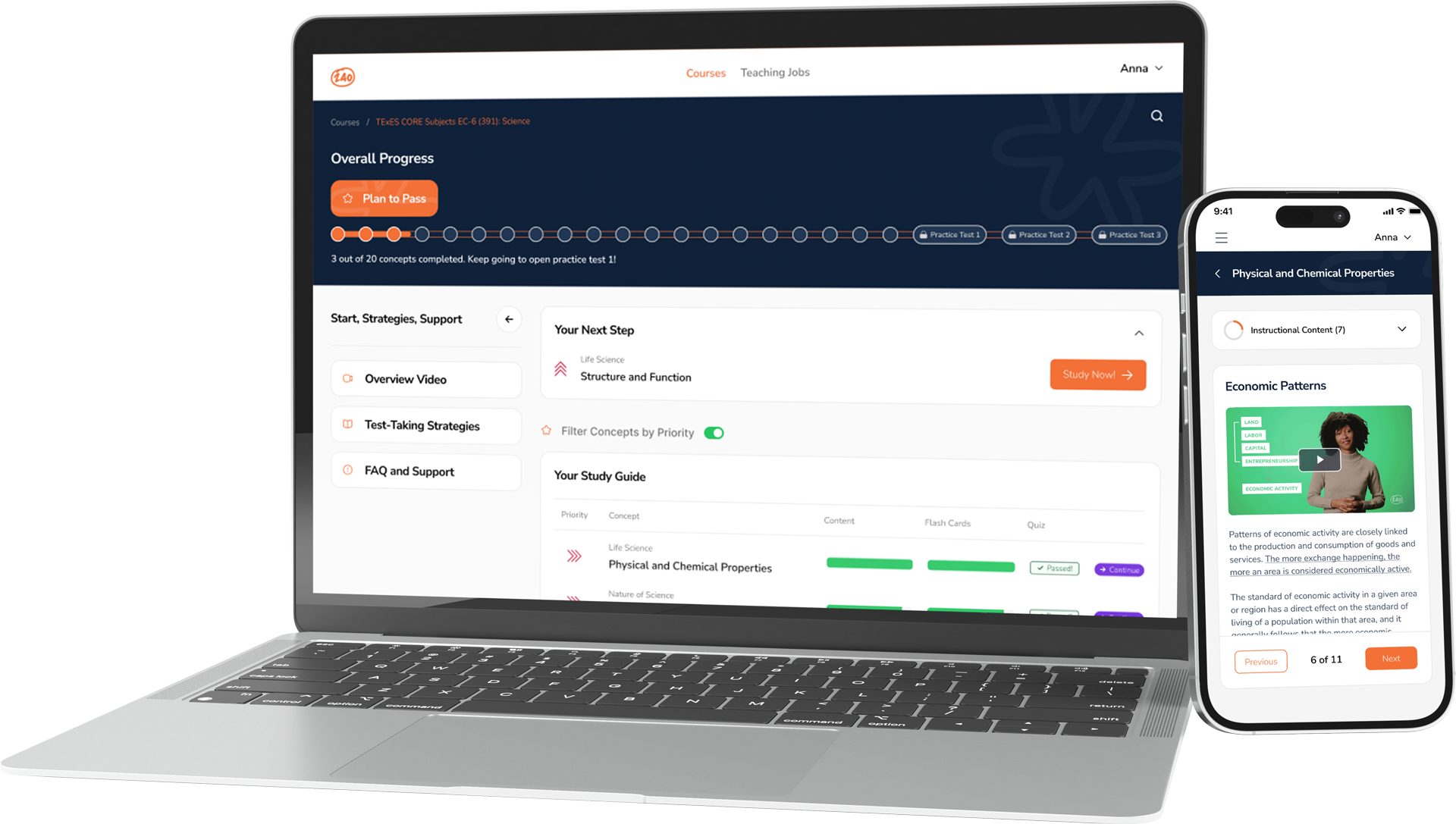31 Effective Classroom Management Strategies for Teachers

As a teacher, you are a leader and a role model, and how you manage your classroom greatly impacts your students. Classroom management strategies will help make your classroom a positive learning environment for all students. Of course, your classroom management style will be unique to you, but that doesn’t mean you have to invent new strategies when you become a teacher.
We compiled a list of effective classroom management strategies so you can choose which ones are best for your classroom. We’ve highlighted what level of education each strategy is best for, but teachers can use all of them for managing student behaviors and supporting their development at any level. See which strategies you think will work by reading through this helpful list.
1. Don’t Reinvent the Wheel — Make it Roll
Best for: New Teachers
Don’t waste time creating new teaching strategies when so many great ones already exist. You don’t need to invent new ideas to show classroom innovation.
New teachers especially need to focus on the basics of classroom management. Learn as many techniques as possible to create a toolbox of options you can pull from. After a while, they will become second nature. You may invent entirely new teaching strategies someday, but first, you must master the basics.
2. Plan for Anything and Everything
Best for: New Teachers
The more you plan, the more confident you’ll feel. Planning creates a structure that will help you stay flexible and adaptive in the classroom. Anytime you feel lost, you can refer to your plan, which will help you stay on track. For example, lesson planning is important for new teachers who need to gain knowledge and experience because it provides a clear path toward an intended goal.
Teachers can plan for things like:
- Lessons
- Units
- The academic year
- Supplies
- Addressing disruptive behavior
- Rewarding positive behavior
There’s no limit to planning, so design any structures you need for short and long-range management goals. Focus on the goals you must reach and the steps you will take to get there. Many types of planning can help you during this phase. For example, backward planning, where you start with your end goal and work backward to create a plan, is a helpful strategy for reaching the goal line.
3. Be a Teacher — not a Friend
Best for: New Teachers
Teachers can be friendly, but never at the student’s expense. Research shows that favoritism can negatively impact students socially and academically. Students need their teachers to be leaders and role models at all times. This means holding all students accountable by explaining and committing to consequences. Without accountability, a student may not excel academically or socially.
Not being a “friend” does not mean you should be negative or act like a bully. Think of yourself like a coach — or even a Jedi Knight — to put yourself in the mindset of a leader. Leaders motivate students, celebrate their successes, and encourage them through tough times. Anytime you get stuck, you can ask, “Is what I am doing in the student’s best interest?” If the answer is “yes,” then you are doing the right thing as a teacher.
4. Be as Organized as Possible
Best for: New Teachers
It’s easy for teachers to feel overwhelmed in their first year of teaching, and being disorganized only adds fuel to the fire. It’s important to have a calendar for important events and milestones as a teacher.
Teachers need to stay organized while preparing and delivering lesson plans. One of the easiest things new teachers can do is keep a tidy classroom. An organized desk and classroom can reduce distractions and help everybody stay focused. You don’t want to waste time searching for documents, so make sure the things you need are easy to retrieve.
Some ways to stay organized in the classroom include:
- Clean your classroom so you and your students stay focused.
- Use binders to organize printed notes and documents.
- Centralize notes to create a one-stop-shop for information.
- Update multiple calendars for your curriculums, professional duties, student birthdays and holidays, important school events, and more.
- Color code classroom items so you and students find organizing easy.
- Create daily checklists with a dry-erase board to make your daily duties a second habit.
- Wear lanyards for all sorts of things like class rosters, important phone numbers, codes, and more.
5. Ask for Feedback
Best for: Student Teachers and New Teachers
Feedback is vital for professional development, especially for student teachers and teachers just starting their careers. Learning how to ask for it can significantly improve your ability to teach. You can get helpful feedback from:
- Students
- Fellow teachers
- Administration and other staff
Remember not to take advice personally; even the best teachers can benefit from feedback.
There are many ways to get feedback from students and colleagues alike. For students, you might want to create an anonymous questionnaire so they don’t feel self-conscious when answering. For colleagues, you can offer to buy them a coffee for a chance to get their advice. Classroom management takes time to learn, so receiving feedback from those with experience can be very helpful.
6. Observe Colleagues and Learn from Them
Best for: Elementary School Teachers
Every teacher has a unique style, and classroom observation is the best way to understand how they work. Observing your colleagues in action might broaden your perspective and show you a different approach to classroom management. Speak to a colleague that teaches a similar subject or age range and ask if you can observe their classroom.
Prepare for the experience by asking questions and requesting their lesson plan. By knowing their lesson plan, you will see where they stick to the plan and where they don’t. This can teach you about improvising, adapting to student needs, time management, and more. Plan to ask questions after and take good notes for reference.
7. Read Books on Classroom Management Strategies for Teachers
Best for: Elementary School Teachers
Get books from local libraries and bookstores. There are many options for books with deep insights into a range of classroom management needs. Consider an area where you want to improve, read the reviews, and find a book that can help you grow as a teacher.
Teachers may want to read about subjects like:
- Teaching online classes
- Teaching students with disabilities
- Teaching students in a multicultural classroom
- Teaching for your first time
- Managing disruptive behavior in the classroom
A few options include:
- The First Days of School: How to Be an Effective Teacher, by Harry Wong (Best for new teachers)
- Managing ADHD in School: The Best Evidence-Based Methods for Teachers, by Dr. Russell Barkley (Best for all teachers with neurodiverse students)
- All Are Welcome, by Alexandra Penfold (Best for elementary teachers with diverse classrooms)
8. Learn to Say ‘No’
Best for: Elementary School Teachers
Students need the discipline to be their best selves and a teacher to help them learn it. Be kind and clear by saying, “I don’t do X” or “Y isn’t acceptable by school standards.” You don’t have to say yes to everything to be a good teacher or coworker.
While showing enthusiasm is good, you need to maintain a healthy balance at work and in life. Colleagues can ask you to cover detention duty or supervise the cafeteria, but it shouldn’t be an unfair amount. When this happens, just be clear and communicate how you plan to approach these commitments.

9. Build Trust with Your Students
Best for: Elementary School Teachers
Building trust with your students is key at all levels, but it’s essential when you’re an elementary school teacher. You can build trust differently depending on your students’ ages, but it all comes down to mutual respect. A trusting student can be more open about difficulties they face in the classroom and their personal lives.
You can develop trust with students by:
- Being consistent
- Being honest
- Giving students tasks that show trust
- Treating them with respect (especially true for elementary school)
Treat students with respect and sincerity, and their trust will follow. Keep students accountable by clearly communicating what happens when trust is broken, such as losing certain privileges. But try and keep the experience positive.
10. Communicate with Parents
Best for: Elementary School Teachers
According to research, communicating with parents is important for a student’s motivation, engagement, and academic achievement. Teachers should want to make the most of the opportunity. Listen and be respectful of their perspectives. Focus on your body language, ask questions, and ensure they know you are listening. Keep the conversation positive and productive with solution-oriented comments.
Try to make a strong first impression with parents to establish a solid line of communication. If they can’t make it to the first parent/teacher meetings, you should reach out to schedule a separate time to talk. You will be developing this relationship all year, so don’t worry about the specifics of the meeting. Your priority is your student’s success, and a good relationship with their parents will benefit everybody in the end.
11. Earn Respect
Best for: Middle School Teachers
As a role model, it is essential to earn the respect of your students so they will seek to emulate you. This directly impacts classroom management, as respectful students will exhibit good behavior. Trust builds respect, admiration, and understanding.
Teachers can earn respect in lots of ways. Try the following methods:
- Memorize students’ names
- Give simple compliments, like “cool hat”
- Show interest in their interests
- Be your authentic self
- Be honest
- Learn a phrase in their language
12. Have Fun and Be Yourself
Best for: Middle School Teachers
Authenticity makes a big difference with students. While having a well-managed classroom is important, it is just as important for students to feel engaged and have fun in a social setting. Fun isn’t a frivolous thing; students must develop social skills in the classroom.
Think of fun activities appropriate for your students’ ages and abilities. Board games like Uno and Boggle can reward good behavior. You can organize a fun activity like show and tell so the students can share their interests and practice public speaking. Plan to give yourself lots of time for these activities so there is no pressure and everybody can feel relaxed.
13. Don’t Make Empty Threats
Best for: Middle School Teachers
As the saying goes, don’t write a check you aren’t prepared to cash. Empty threats tell students there are no consequences for their actions. Students will learn they can get away with bad behavior, and this can be challenging to fix after the fact.
Prepare a list of bad behaviors and write down an appropriate consequence. Next, communicate these guidelines so students know what to expect. Being open about the consequences with your students will show you respect their intelligence, and this can support a well-managed classroom.
14. Give Students Lots of Choices
Best for: Middle School Teachers
Choices are a great way to make everybody feel included and enabled. Students have many learning styles, preferences, and abilities to consider. When possible, try to provide options for assignments, tasks, etc.
Younger students can choose from various activities during class, which helps improve their decision-making skills. Middle and high school students can choose how to approach a larger project.
Options can be made for:
- Written assignments
- Vlog-style video reports
- Podcast-style audio essays
Ask students what they would like to do. You don’t have to agree on the spot, but it can be a helpful way to show respect and maybe get some valuable information for future projects.
15. Do Team-Building Activities
Best for: Middle School Teachers
Team-building activities are great for middle school students who need to develop life skills such as listening, working in a group, and problem-solving. A positive team-building experience can boost students’ self-esteem and encourage them to work with others.
Activities that promote teamwork can happen within the classroom. Puzzles and scavenger hunts are popular activities. Outside the classroom, you can get students involved in team projects like community gardens, murals, and more. Speak with your school and students to gather potential ideas that work for everybody.
16. Let Loose with Colleagues
Best for: High School Teachers
Building rapport with your colleagues is important. It can be very rewarding to let loose and talk with people who understand your challenges. Teaching is a demanding job, so you should try and express yourself and let go of any frustrations.
Letting loose with colleagues can also help you manage your classroom. For example, you might mention a problematic student and receive helpful advice from another teacher who has also dealt with them. Avoid complaining and stay solution-oriented to improve your classroom management skills.

17. Reward Positive Behavior
Best for: High School Teachers
You should try to manage your classroom by rewarding positive behavior, especially in high school settings. Rewarding positive behavior is a way to communicate classroom rules and expectations positively. When students know you reward positive behaviors, they will be more likely to demonstrate them.
Remember that high school students are clever, and you don’t want a reward system they can take advantage of. Plan for the behaviors you want to reward and consider communicating this to your students so they know what to expect.
Rewards can be simple things like:
- Bonus points for an upcoming assignment
- Free items like school supplies or stickers
- Free snacks or a cafeteria voucher
- A fun activity for the whole class to enjoy
18. Fake it ‘til you Make it
Best for: High School Teachers
It’s easy to get imposter syndrome during your first years of teaching. New teachers have a lot to learn, but you can feel okay knowing every teacher goes through the same thing.
Sometimes you have to learn alongside a student, which can be a great learning experience for you both. Just because you don’t know something doesn’t mean you can’t teach. You don’t need to hide your gap in understanding, you just need to encourage the student’s learning.
When you don’t have an answer, you can ask questions like:
- What do you think?
- How would you approach the next step?
- Where do you think we can learn more?
19. Be Clear about your Classroom Management Strategies
Best for: High School Teachers
Honesty is often the best policy. High school students are especially perceptive, so it’s important to be transparent and honest about classroom expectations. You want students to behave, so there’s no benefit in hiding your classroom management strategies.
Clear expectations also mean no wiggle room for students to claim ignorance. And speaking clearly about your expectations will show respect and help build rapport. When students know your strategy, you will also feel motivated to stick to your word.
Explaining classroom management strategies is also important for passing your state’s certification exam, such as NES.
Be Consistent
Best for: High School Teachers
Be as consistent as possible. As a leader and role model, you don’t want students to feel like you are unreliable. This can encourage disruptive behaviors. Always be consistent with lesson plans, rules, and expectations. Students can feel discouraged when they don’t know what to expect, which can impact their ability to succeed in school.
As a professional, you also want to be consistent with your colleagues. Know your limits and be consistent so your coworkers can rely on you. Rather than push yourself to do lots of volunteer work before burning out, setting expectations for yourself and communicating this with colleagues is important. Consistency shows a level of self-understanding and improves your professional reputation.
21. Ask Colleagues for Advice and Information
Best for: College Teachers
If you don’t ask, you don’t receive. Self-directed learning is essential for teachers, especially in higher education. Speak to folks in your department and learn from their years of experience in the classroom. You must guide yourself in learning about school culture, your department, the students, and so forth.
Student teachers with a mentor are in a great position to get advice, but you should ask for important information. Colleagues will take your questioning as a sign of respect, which can help you build positive professional relationships.
22. Set Clear Expectations
Best for: College Teachers
At higher levels of learning, students are expected to show self-discipline at all times. You will need to set clear expectations so students can hold themselves accountable. Give them the best chance at success by being as straightforward as possible. Ensure they know when to reach you for office hours if they require a more direct conversation.
Expectations are essential for higher education students who have invested a lot of time and money into their schooling. You don’t want to invite arguments about grading because you weren’t clear from the beginning. While they might not all agree with your structure, they will certainly respect your clarity.
23. Have Boundaries with Students
Best for: College Teachers
Boundaries are important for everybody in the classroom because they enforce the student/teacher relationship and ensure appropriate behavior. Teachers who step outside these boundaries can create a power imbalance that may harm students. It’s important to respect your role, especially in higher education, when teachers are closer in age to their students. You don’t want to be too friendly with some students at the expense of others.
You should also enforce boundaries to protect your time and create a work-life balance. Tell students exactly what you are willing to do and what you aren’t, so there’s no question. Boundaries with students ensure they can have a safe, respectful, and conducive environment for learning.
24. Be Honest
Best for: College Teachers
There’s no benefit to acting like a know-it-all. Especially in higher education, where students are passionate about an advanced subject. It can be difficult to manage a classroom when you have lost trust. So, prepare to admit you don’t know something.
When you don’t have an answer to a question, admit you don’t know. This can lead to conversations about the course, available resources, and more.
When you don’t have the answer, keep the conversation going with questions like:
- What do you think?
- Does anybody else know?
- Where might we learn more?
- What brings this question to mind?
- Would anybody like to help me research?
25. Use Available Resources
Best for: College Teachers
Use any available resources to improve your skills as a teacher. College and university professors usually have access to learning centers on campus. These learning centers can help teachers improve educational skills like classroom management, lesson planning, and more. Don’t forget that your development as a teacher is a priority for the school.
Your local library can also be a great resource for books, workshops, classes, and more. You can access online resources to rent audiobooks, e-books, and movies through your school or public library. You can also use websites like YouTube to learn more about teaching strategies, tools, and so much more.
26. Understand your Students’ Backgrounds
Best for: Culturally Responsive Teachers
Students are more likely to succeed when they feel included. This is especially important for ELL (English language learning) students. Understanding the diversity of your students can help all students become more accepting members of society.
You don’t need to be an expert to show an understanding of your students’ cultures in the classroom. Ask students respectful questions about their background, or even give them a survey to take home and fill out with their parents.

27. Learn about Culture from Parents
Best for: Culturally Responsive Teachers
Parent/teacher events can be a great way to learn about students and show parents you invest in their child’s development. Invite parents to meet you outside of these events if you want to take more time to learn about them and their goals.
Ask parents questions that support their child’s development, such as:
- What are your goals for your child’s schooling?
- What is the best way to stay in touch with you (the parents)?
- Do you want to explain anything else about your child to me?
- Do you have any concerns for your child regarding school?
- Do they know about upcoming school events? Are they able to attend?
28. Incorporate Diversity in Creative Ways
Best for: Culturally Responsive Teachers
Incorporating diversity can be fun and make you step outside of your comfort zone. Teachers can work diversity into lesson preparation by choosing books from various authors that reflect the students’ backgrounds. Field trips can also be a great chance to expose students to different cultures in a fun way.
The classroom environment is a great way to teach children about diversity in engaging ways. You can incorporate diversity with simple things like:
- Multilingual labels for classroom items
- Holiday decorations for Chinese New Year, Christmas, Cinco de Mayo, and more
- Show-and-tell activities that reflect their culture
29. Be Calm and Consistent when Students are Challenged
Best for: Teachers of Students with Learning Disorders
Students can have difficulty learning for many reasons. Some students may have ADHD, undiagnosed behavioral issues, or a disability that impacts learning. The most important thing is consistency. While this may be challenging, remember that you are a role model for the student.
Supportive teachers can get better results from students facing social and emotional challenges. Always remain calm and be as consistent as possible. Ask questions and pay attention to how your student communicates. Your school may have resources available to help you, and there are many strategies for dealing with social and emotional difficulties.
30. Try Different Approaches to Learning
Best for: Teachers of Students with Learning Disorders
Learning disabilities and difficulties don’t necessarily reflect a student’s intelligence. For positive results, you must get creative and find ways to meet students on their level. Classroom management begins with you meeting the needs of students. Ask questions and listen for any clues that indicate the difficulties they are facing.
Consider supporting students with learning difficulties by:
- Giving students advanced notice on projects
- Allowing students to use a laptop instead of writing by hand
- Providing step-by-step breakdowns for projects
- Incorporating visuals whenever possible
- Explaining assignments in multiple ways
- Allowing lots of questions
- Asking for feedback on assignments
31. Give Plenty of Positive Feedback
Best for: Teachers of Students with Learning Disorders
Feedback is one of the most powerful ways to impact a student’s development in the classroom. Providing feedback positively reflects the student’s effort and shows your acknowledgment. Great teachers know how important their feedback is for students, and they know how to use it to make a difference.
Everybody has their idea of what feedback is, so take the time and learn how your students like to receive it. Some students prefer direct feedback, such as a one-on-one conversation or acknowledgment from the group. Other students may prefer indirect feedback, like a thumbs up or a sticker. Your feedback matters greatly to students, so make the most of it by learning how they best receive it.
Your classroom management strategies will be specific to your style, classroom, and the students who make it unique. Nobody gets it perfect immediately, and you will always adapt and experiment to see what strategies work best for your students. It’s all part of the journey of becoming a teacher.
Use our study guides to prepare for their certification exam in any state. We’ll help you succeed and get hired as a certified teacher.


